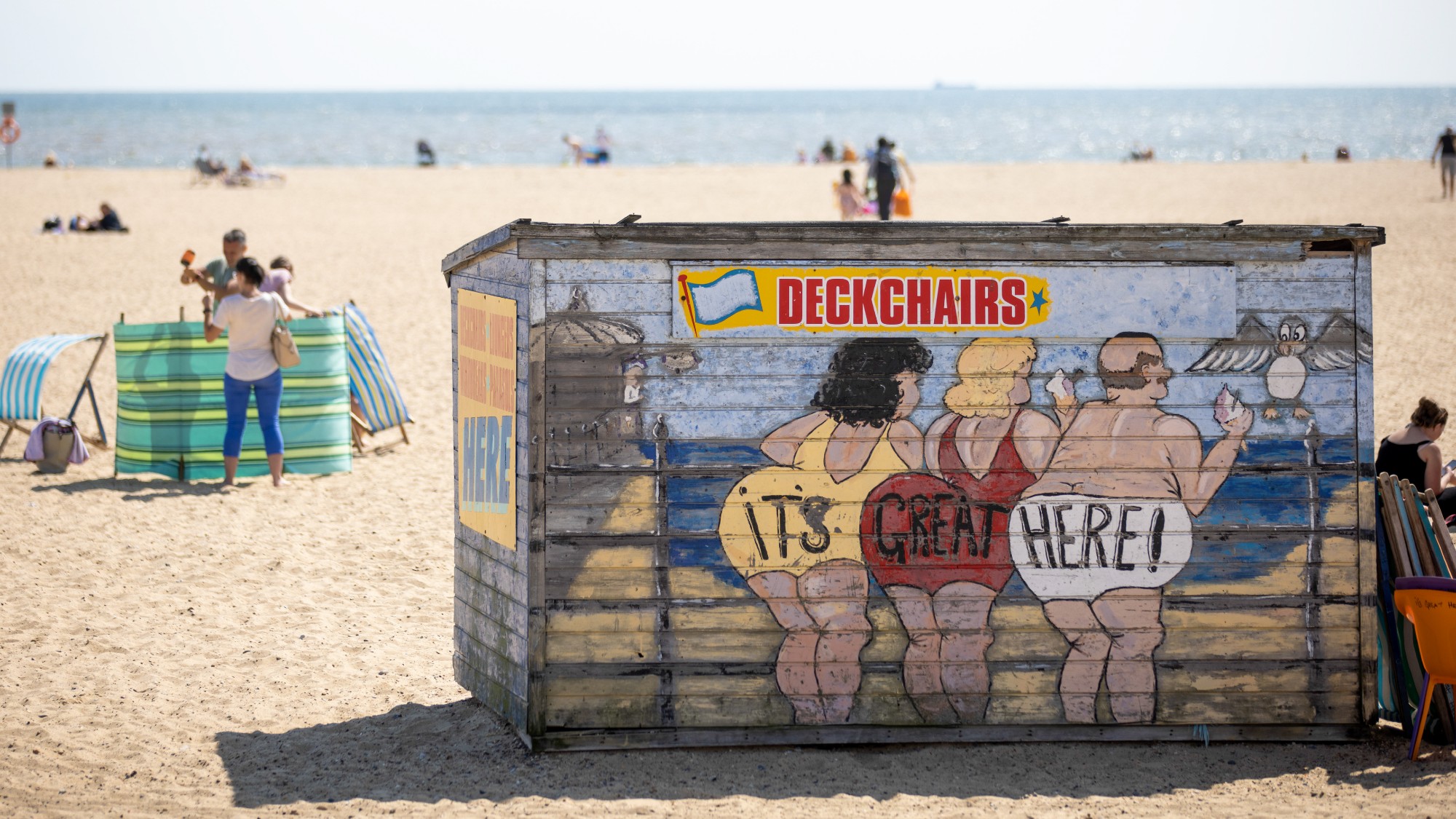Russia's spies: skulduggery in Great Yarmouth
'Amateurish' spy ring in Norfolk seaside town exposes the decline of Russian intelligence

A free daily email with the biggest news stories of the day – and the best features from TheWeek.com
You are now subscribed
Your newsletter sign-up was successful
When counter-terrorism police raided a "modest" former guest house in Great Yarmouth, in 2023, they found a trove of spy gadgets, said Mark Hollingsworth in The Independent: bugs, signal jammers, cameras hidden in glasses and ties and stuffed toys. From this "unlikely" setting in Norfolk, Orlin Roussev, a Bulgarian national, had been running a Russian-backed spy ring: he and his accomplices had hatched plans to "burgle, honey-trap, murder and kidnap" across Europe.
Their paymaster was Jan Marsalek, a fugitive Austrian businessman wanted for his role in the €1.9 billion Wirecard fraud, who now lives in Moscow and who told them that he was working for Russian intelligence; their targets included Russian dissidents and the journalist Christo Grozev, a Bulgarian who had exposed Kremlin links to the Salisbury poisonings. Last week, three members of the ring were convicted in London of spying for Russia. Roussev and two others had already pleaded guilty.
Russian espionage has always been a dirty business, said Owen Matthews in The Spectator. But in the past it was at least effective and ingenious. Today, it seems to be "pathetic" and "amateurish". Roussev assembled a "motley group" of Bulgarians – a medical courier, a beautician, a decorator – whom he nicknamed his "minions" after the sidekicks of the villain Gru in the children's film "Despicable Me". They used silly code names: Mad Max, Jackie Chan. Three of them were involved in a tawdry love triangle. When Roussev was arrested, thousands of incriminating messages were found on his phone, which he hadn't even thought to erase. The reason for the decline is that, since Salisbury and the Ukraine War, scores of Russian diplomats and spies have been expelled from the UK – so Moscow has resorted to "recruiting criminals".
The Week
Escape your echo chamber. Get the facts behind the news, plus analysis from multiple perspectives.

Sign up for The Week's Free Newsletters
From our morning news briefing to a weekly Good News Newsletter, get the best of The Week delivered directly to your inbox.
From our morning news briefing to a weekly Good News Newsletter, get the best of The Week delivered directly to your inbox.
They may have been stupid, but Roussev's gang were still dangerous, said Daniel Boffey in The Observer. They tracked Grozev across Europe. Their handler, Marsalek, proposed killing the Russian journalist Roman Dobrokhotov: "Maybe burn him alive in the street, spray him with some super-strong acid," he suggested. For Putin's enemies, nowhere in Europe is safe.
A free daily email with the biggest news stories of the day – and the best features from TheWeek.com
-
 How the FCC’s ‘equal time’ rule works
How the FCC’s ‘equal time’ rule worksIn the Spotlight The law is at the heart of the Colbert-CBS conflict
-
 What is the endgame in the DHS shutdown?
What is the endgame in the DHS shutdown?Today’s Big Question Democrats want to rein in ICE’s immigration crackdown
-
 ‘Poor time management isn’t just an inconvenience’
‘Poor time management isn’t just an inconvenience’Instant Opinion Opinion, comment and editorials of the day
-
 What is ‘Arctic Sentry’ and will it deter Russia and China?
What is ‘Arctic Sentry’ and will it deter Russia and China?Today’s Big Question Nato considers joint operation and intelligence sharing in Arctic region, in face of Trump’s threats to seize Greenland for ‘protection’
-
 New START: the final US-Russia nuclear treaty about to expire
New START: the final US-Russia nuclear treaty about to expireThe Explainer The last agreement between Washington and Moscow expires within weeks
-
 What would a UK deployment to Ukraine look like?
What would a UK deployment to Ukraine look like?Today's Big Question Security agreement commits British and French forces in event of ceasefire
-
 Did Trump just end the US-Europe alliance?
Did Trump just end the US-Europe alliance?Today's Big Question New US national security policy drops ‘grenade’ on Europe and should serve as ‘the mother of all wake-up calls’
-
 Is conscription the answer to Europe’s security woes?
Is conscription the answer to Europe’s security woes?Today's Big Question How best to boost troop numbers to deal with Russian threat is ‘prompting fierce and soul-searching debates’
-
 Trump peace deal: an offer Zelenskyy can’t refuse?
Trump peace deal: an offer Zelenskyy can’t refuse?Today’s Big Question ‘Unpalatable’ US plan may strengthen embattled Ukrainian president at home
-
 Vladimir Putin’s ‘nuclear tsunami’ missile
Vladimir Putin’s ‘nuclear tsunami’ missileThe Explainer Russian president has boasted that there is no way to intercept the new weapon
-
 The Baltic ‘bog belt’ plan to protect Europe from Russia
The Baltic ‘bog belt’ plan to protect Europe from RussiaUnder the Radar Reviving lost wetland on Nato’s eastern flank would fuse ‘two European priorities that increasingly compete for attention and funding: defence and climate’